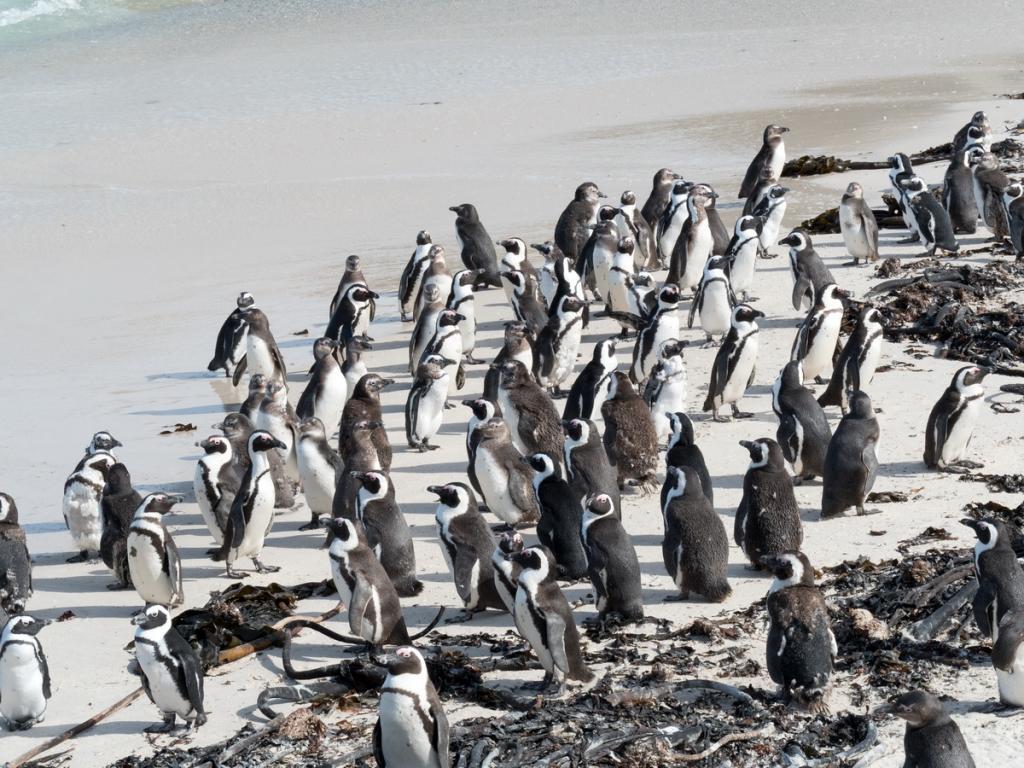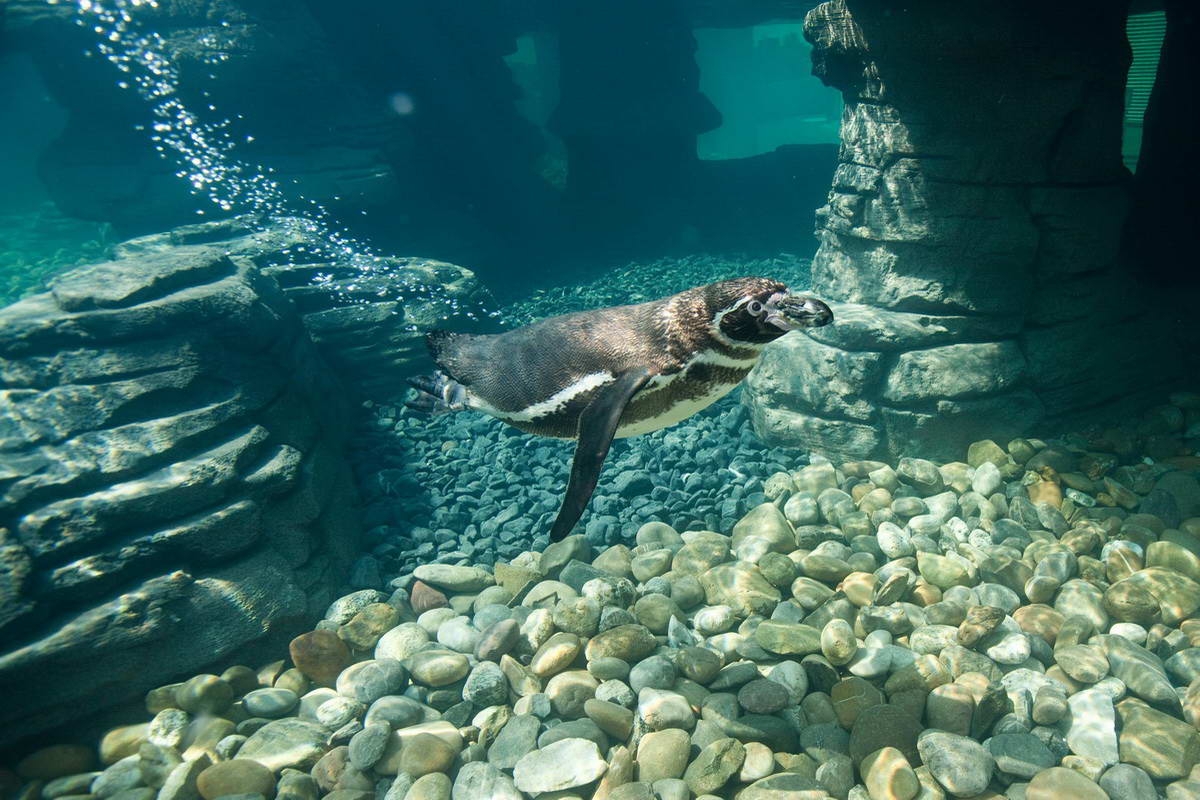
© Penguins
(c) Jan Finsterbusch

© Humboldt penguins in the Ozeaneum Stralsund
(c) Johannes-Maria Schlorke / OZEANEUM Stralsund
How well can penguins hear?
May 23, 2018
New research project at the German Marine Museum StralsundA research project for the next three-year has started at the German Maritime Museum Stralsund, where scientists are investigating how well penguins can hear. The results will then be communicated to the general public with a focus on the effects of underwater noise in the Antarctic sea. This will take place under the auspices of the Museum of Natural History Berlin.
Penguins are frontier runners between the worlds - they live both in the sea and on land. Some species can reach depths down to 500 meters and are perfectly adapted to life under water, while other species spend a large part of the year on land or on ice, raising their chicks there. Although many facts about penguins, such as their foraging and migration, have been scientifically proven, little is known about their listening skills.
"
Actually, there is only one study of penguins listening to sound from 1969 so far. For black-footed penguins, therefore, we have a rough indication of how well they can hear on land, that is, in the air," says project leader Dr. Ing. Michael Dähne of the German Maritime Museum. "
For our study, we have gained experts from the University of Southern Denmark in Odense and from the Marine Science Center in Rostock, who will help us to investigate the hearing ability of underwater penguins more closely." The cooperation partners will conduct joint research over the next three years, to get closer to the central question of the project: how sensitive are penguins to natural and man-made sounds (and noise)?
For this purpose, Odense Zoo (Denmark), the Marine Science Center Rostock and the Ozeaneum Stralsund train penguins. As with a hearing test, the animals learn to indicate when they have heard a sound signal on land and are rewarded with food fish. Afterwards they do this task while diving.
"
The problem of noise is as important for the animals in the oceans as the problem of garbage, but is still far from being known in public," says the director of the German Maritime Museum, Dr. med. Harald Benke. "
That's why we're delighted that we have won a project partner with the Museum of Natural History in Berlin, which will devote itself to the topic of science communication on noise in the sea to the general public." Jana Hoffmann of the Museum of Natural History adds: "
Via an internet platform, we will shed light on underwater noise with a special focus on the Antarctic. We will develop formats that raise public awareness - noise in the sea is a problem we urgently need to address."
In the Southern Ocean, penguins, but also whales and seals are protected by the Antarctic Treaty from interference from underwater noise and other man-made influences.
Weitere Informationen:
https://www.deutsches-meeresmuseum.de.